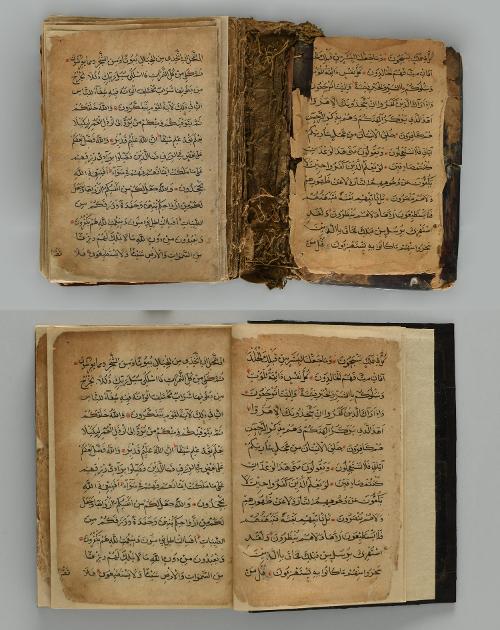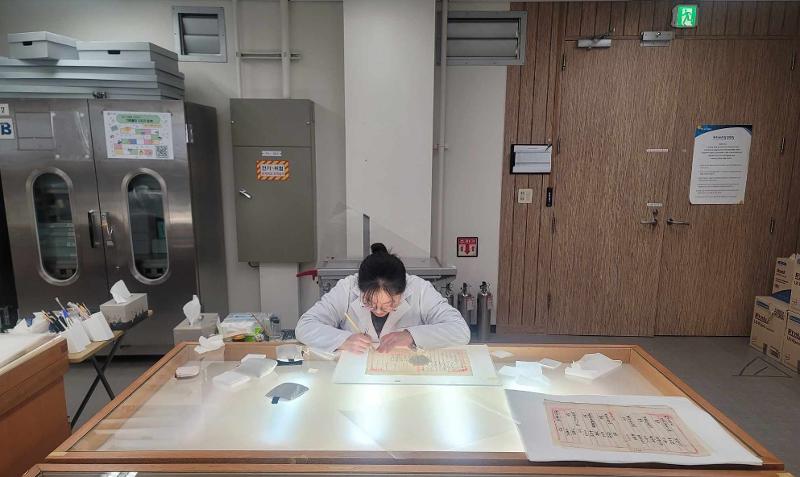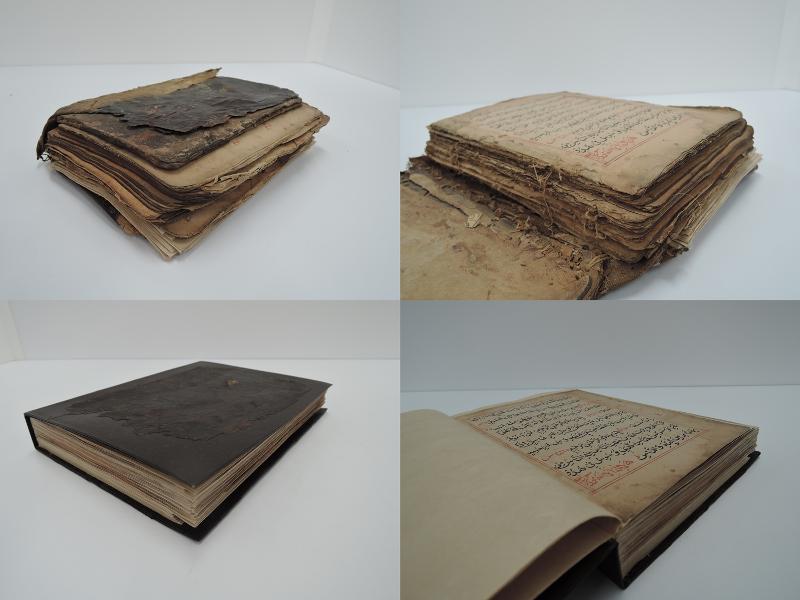
This is a 19th-century edition of the Quran before (top) and after (bottom) restoration by the National Archives of Korea (NAK) per request by the Pakistani government. (NAK)
By Yoo Yeon Gyeong
The country's know-how in archive and document restoration could be the next big thing in Hallyu (Korean Wave).
From the Taejong Sillok (Veritable Records of King Taejong) of Korea to a 19th-century edition of the Quran from Pakistan, the National Archives of Korea (NAK) is increasingly grabbing the global spotlight for restoring and replicating historical treasures that have faded and crumbled over the centuries.
A Korea.net staff writer on the morning of Jan. 7 visited the restoration room of the NAK branch in Seongnam, Gyeonggi-do Province. Three to four researchers in white gowns were busy restoring the Archives from the Donghak Peasant Revolution, which are designated UNESCO Memory of the World.
In their restoration work, the staff by hand meticulously flipped each cracked and moldy page to gauge size, thickness and acidity of the paper and smeared a solution on them with a thin brush.

A researcher on Jan. 7 works on restoring the Archives of the Donghak Peasant Revolution, which are designated UNESCO Memory of the World, at the restoration room of the Seongnam, Gyeonggi-do Province, branch of the National Archives of Korea. (Yoo Yeon Gyeong)
NAK has received requests from 150 institutions at home and abroad to restore and replicate key archives and documents spanning 98,238 pages. Under an objective selection process, it has helped the restoration of 8,650 pieces requested by 71 organizations.
Among the agency's leading projects are the March First Declaration of Independence, Grand Dictionary of Korean and a postcard with the blood handprint of Ahn Jung-geun (1879-1910), an independence movement martyr.
Last year, NAK completed a nine-month project to restore a 19th-century edition of the Quran at the request of the Pakistani government.

The photos show the 19th-century edition of the Quran before (top two) the National Archive of Korea's (NAK) restoration and after (bottom two). (NAK)
Fiber analysis was done on ultra-tiny fragments that fell off while the restorers dismantled each of the book's 210 pages. They made Hanji (traditional paper) of similar thickness and density by boiling alder berries and dying them with salted solution to fix or reinforce damaged sections.
Restoration of the damaged cover came through processing cowhide with similar traits to those of the original cover into a thin layer and dying it with a similar color.
"The book's pages and spine were severely damaged that the Quaran failed to retain its original shape, but we restored its stability using a material and form as similar to the original as possible," NAK researcher Na Mi-seon said. "We eliminated contaminants from the book's surface and inside using wet and dry cleaning to enhance legibility."
The Pakistani government awarded NAK a plaque of appreciation for this project, and thanked the agency for such restoration after NAK in 2023 held a training session in Pakistan on such work for officials from 11 government organizations.
Restoration staff from Archives du Maroc (Archives of Morocco) in November 2023 practice removing vinyl tape at the National Archive of Korea's (NAK) branch in Seongnam, Gyeonggi-do Province. (NAK)
Rising global recognition of NAK's know-how has fueled requests to the agency for related training. Even the British Museum in London has requested NAK's cooperation.
From 2008 to November last year, 537 experts from 28 countries received training at NAK in archive and document restoration and management. Eighteen countries also have business agreements with NAK including the U.K., Australia and China.
"The National Archives of Korea has outstanding restoration technology that has attracted an increasing number of requests from home and abroad to support and transfer technology in such restoration, and thus a relevant role is required," NAK President Lee Yong-chul said. "We will keep doing our best with a sense of responsibility as a professional institution specializing in archive and record restoration to ensure the safe preservation of humanity's precious archive heritage."
dusrud21@korea.kr